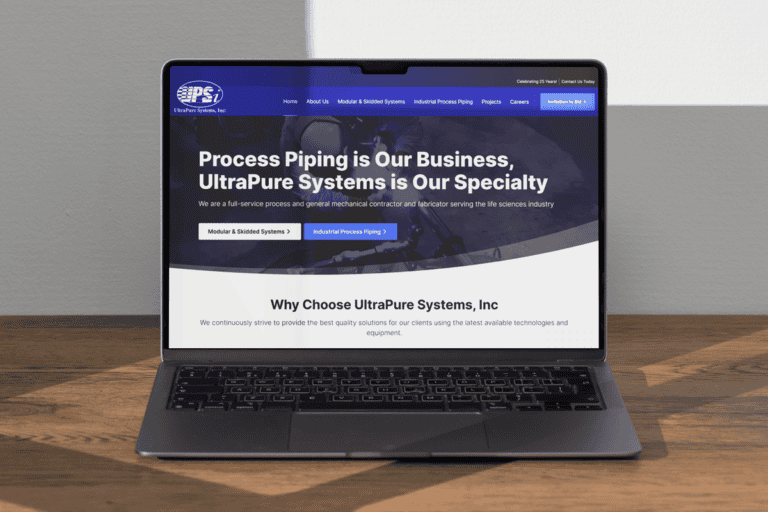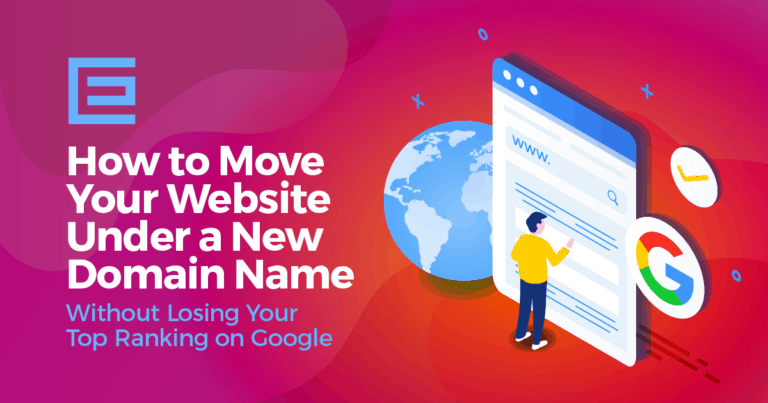Gone are the days when traditional advertising methods reigned supreme. Today, the digital landscape is where the action happens. This transformation isn’t just about more people shopping online; it’s about how they use the internet to influence their buying journey. From researching products on search engines to reading online reviews and engaging with brands on social media, the digital footprint of the average consumer has expanded exponentially.
This change in consumer behavior underscores the importance of having a robust online presence. Businesses can no longer afford to ignore the digital realm. It’s not just about being online; it’s about being visible and relevant in a space crowded with competitors vying for attention. This is where the art and science of Search Engine Optimization (SEO) come into play.
The Crucial Role of SEO in Today’s Business Landscape
In this digital-first world, SEO is a cornerstone of modern business strategy. It’s no longer a nice-to-have or an afterthought; it’s a necessity. Why? Because SEO is the bridge that connects businesses with their online audiences. In a landscape dominated by search engines, particularly Google, appearing on the first page of search results can be the difference between a thriving business and one that’s struggling to be noticed.
SEO is more than just keywords and links; it’s about creating a seamless, engaging online experience that resonates with your target audience. It’s about understanding what your customers are searching for, how they search, and ensuring that your website and content are optimized to meet those needs. By doing so, you not only improve your visibility on search engines but also establish credibility and trust with your audience.
Moreover, SEO isn’t static. It evolves constantly, mirroring changes in search engine algorithms, consumer behavior, and technological advancements. This dynamic nature of SEO means businesses must stay agile, continuously adapting their strategies to maintain and improve their search engine rankings.
As we delve deeper into the nuances of SEO and its impact on businesses, remember this: In a world where the first page of Google is the new prime real estate, SEO is your key to unlocking its potential.
The Dominance of Organic Search
Organic Search: The Unseen Backbone of Web Traffic
Organic search is the quiet powerhouse driving the majority of web traffic, a fact that many businesses tend to overlook. When people need answers, products, services, or just about anything, their journey typically begins with a search engine. This habitual reliance on search engines has made organic search the lifeblood of navigating the online world.
The beauty of organic search lies in its natural and unforced nature. Unlike paid advertisements that fight for your attention, organic search results earn their place at the top through relevance, credibility, and quality. This is where the true art of SEO shines – optimizing your website and content in a way that aligns with what your audience is searching for. It’s about being there when your potential customers need you, without the overt sales pitch.
Google’s Market Share: A Key Player in Visibility
When we talk about search engines, it’s impossible not to focus on Google. Holding the lion’s share of the search engine market, Google is more than just a company; it’s a verb, a routine part of daily life. This dominance isn’t just a testament to its technological prowess; it’s a reflection of how deeply ingrained Google has become in our digital habits.
Google’s market share is a double-edged sword for businesses. On one hand, it offers an unparalleled opportunity to be visible where most of the world is searching. On the other hand, it means the competition is fierce, and the standards are high. Google’s algorithms are notoriously complex and constantly evolving, designed to deliver the most relevant, high-quality content to its users. This relentless pursuit of excellence means that businesses must continually elevate their SEO game to meet Google’s standards.
Being visible on Google is like having a storefront on the busiest street in the global digital marketplace. It’s where credibility is built and where opportunities are born. The key is not just to appear on Google but to rank high enough to be noticed. This is why understanding and leveraging Google’s market share is crucial for any business looking to thrive in the digital age.
Building Trust and Credibility
Establishing Brand Authority through SEO
Trust and credibility are not just beneficial; they’re essential. This is where SEO plays a pivotal role in sculpting the authority of your brand. It’s not just about being visible; it’s about being recognized as a reliable and authoritative source in your industry. SEO helps in laying this foundation of trust with your audience by ensuring that your brand appears where your customers are looking, and with the right message.
The journey to establishing brand authority through SEO is multifaceted. It involves creating content that resonates with your audience’s needs and queries, optimizing your website’s technical aspects to ensure a seamless user experience, and consistently updating your strategies to align with the latest search engine algorithms. When your brand consistently appears in top search results, it doesn’t just get more traffic – it earns a badge of trust from both your audience and search engines.
The Power of Natural Links, Positive User Behavior, and Optimized Content
Natural Links: Building Blocks of Trust
Natural links are like word-of-mouth recommendations in the digital space. When other reputable websites link to your content, they’re essentially vouching for the quality of your information. This endorsement is invaluable in building your brand’s credibility. However, earning these links is about more than just luck; it’s about creating content that is genuinely useful, informative, and worth sharing. SEO strategies focused on producing high-quality content naturally attract these links, thereby enhancing your brand’s authority.
Positive User Behavior: A Vote of Confidence
User behavior is a clear indicator of how your audience perceives your brand. Metrics like click-through rates, time spent on your site, and bounce rates are not just numbers; they’re reflections of user engagement and satisfaction. Positive user behavior is a strong signal to search engines that your website is providing valuable and relevant information. SEO optimizes your website to foster this positive engagement, ensuring that users find what they’re looking for and stay engaged with your content.
Optimized Content: The Heart of SEO
At the core of SEO lies content optimization – the process of making your website’s content relevant and accessible to your target audience. This goes beyond just sprinkling keywords throughout your text. It’s about creating content that speaks directly to your audience’s needs, questions, and pain points. Optimized content is easily discoverable, highly relevant, and engaging, making it a powerful tool in building your brand’s credibility. It’s the bridge that connects your audience’s queries to your solutions.
Building trust and credibility through SEO is a strategic process that involves more than just technical know-how. It’s about understanding and responding to your audience’s needs, creating valuable content, and fostering positive user experiences. As we continue to explore the vast landscape of SEO, remember that at the heart of all these efforts is the goal of establishing your brand as a trusted authority in your field.
Understanding Consumer Behavior through SEO
Gleaning Insights into Customer Needs and Preferences
At its core, SEO is more than just a tool for improving website rankings; it’s a window into the minds of consumers. By analyzing how users search, the keywords they use, and the type of content they engage with, businesses can gain profound insights into customer needs and preferences. This information is invaluable for tailoring your products, services, and content to meet the evolving demands of your target audience.
Imagine SEO as a digital listening tool. Every search query is a direct expression of your customers’ needs, questions, or problems they are trying to solve. By optimizing your website and content around these queries, you’re not just aiming to rank higher on search engines; you’re aligning your business more closely with what your customers are actively seeking. This alignment is crucial for building relevance and trust with your audience.
Leveraging Search Query Data and SERP Analysis
The Power of Search Query Data
Search query data is like gold dust in the world of SEO. It provides direct insight into what your audience is searching for, the language they use, and the intent behind their searches. By analyzing this data, you can uncover trends, identify popular topics, and understand the specific problems or needs your customers have. This information guides the creation of targeted content that addresses these needs, positions your brand as a solution, and ultimately drives more qualified traffic to your site.
SERP Analysis: Understanding the Competitive Landscape
Search Engine Results Page (SERP) analysis takes you a step further. It’s not just about understanding your audience; it’s about understanding how search engines are responding to user queries in your niche. By analyzing the types of content that rank high for your target keywords, you can gain insights into what search engines deem most relevant and valuable for those queries. This analysis helps you refine your content strategy, ensuring that it aligns with both user intent and search engine criteria for quality and relevance.
The Emerging Role of AI in SEO Insights
The advent of AI in SEO has opened up new frontiers in understanding consumer behavior. AI-powered tools can process vast amounts of data at incredible speeds, providing deeper and more nuanced insights than ever before. These tools can analyze patterns in user behavior, predict trends, and even suggest content optimizations based on real-time data.
AI in SEO goes beyond traditional keyword analysis. It delves into semantic search, understanding the context and nuances of user queries. This capability allows for more sophisticated content strategies that are highly tailored to the specific needs and preferences of your target audience. In essence, AI is transforming SEO from a reactive practice into a proactive one, enabling businesses to anticipate and meet customer needs more effectively.
In summary, understanding consumer behavior through SEO is a dynamic and multifaceted process. It involves delving into search query data, conducting thorough SERP analysis, and leveraging AI for deeper insights. This process is not just about driving traffic; it’s about building a deep and nuanced understanding of your customers, which is essential for any business looking to thrive in the digital age. As we continue to explore the vast landscape of SEO, remember that at its heart lies the goal of connecting with your audience in the most meaningful and relevant way possible.
The Importance of Local SEO
Navigating the Surge in Mobile Traffic and Local Search
In recent years, we’ve seen a significant shift in how people access information online, with mobile devices becoming the go-to source for searches. This change has brought local SEO to the forefront, especially for businesses targeting customers in specific geographic areas. The rise of mobile traffic has made ‘near me’ searches commonplace, where users look for services or products in their immediate vicinity. This trend underscores the need for businesses to optimize their online presence for local search, ensuring they appear prominently when potential customers are looking for relevant local solutions.
Local SEO is not just about being visible; it’s about being visible to the right people at the right time. When someone searches for a service or product in a specific area, they’re usually much closer to making a purchase decision. By optimizing for local SEO, businesses can position themselves to be the answer to these immediate needs, which can significantly impact their foot traffic and sales.
Tailoring Strategies for Local SEO Success
Optimizing for Local Listings and Directories
A crucial step in local SEO is ensuring your business is accurately listed in local directories and online listings, such as Google My Business, Yelp, and TripAdvisor. These listings should be complete, up-to-date, and consistent across platforms. This includes having the correct business name, address, phone number, and operating hours. Additionally, adding photos, a detailed business description, and even responding to reviews can enhance your listing’s effectiveness.
Leveraging Local Keywords
Incorporating local keywords into your website’s content is another vital strategy. This means going beyond generic keywords and including location-specific terms that potential customers are likely to use. For instance, if you’re a bakery in Austin, Texas, keywords like “best bakery in Austin” or “Austin birthday cakes” can help you rank higher in local search results. These keywords should be naturally integrated into your website’s meta titles, descriptions, and content, making it easier for search engines to understand the local relevance of your business.
Encouraging and Managing Online Reviews
Online reviews are the digital equivalent of word-of-mouth and are incredibly influential in local SEO. Encouraging satisfied customers to leave positive reviews on platforms like Google My Business and Yelp can significantly enhance your business’s credibility and attractiveness. Actively managing these reviews, which includes responding to both positive and negative feedback, demonstrates that your business values customer feedback and is committed to customer satisfaction.
Mobile Optimization
Given the dominance of mobile searches in local SEO, ensuring your website is mobile-friendly is non-negotiable. This means having a responsive design that adjusts seamlessly to different screen sizes, fast loading times, and easy-to-navigate menus. A mobile-optimized website not only provides a better user experience but also ranks higher in search engine results, as Google prioritizes mobile-friendly websites.
Local SEO is an indispensable element of a comprehensive digital marketing strategy, especially for businesses looking to capitalize on the local market. By focusing on local listings, leveraging local keywords, managing online reviews, and ensuring mobile optimization, businesses can significantly enhance their visibility and attractiveness to local customers. As we delve deeper into the intricacies of SEO, remember that local SEO is not just about being found; it’s about being found by the right people in the right place.
Influencing the Buying Cycle
SEO: A Conduit for Brand Messaging and Offers
SEO plays a pivotal role in how a brand communicates its messages and offers to potential customers. It’s not just about being visible; it’s about being visible with the right message at the right time. When a customer embarks on their buying journey, they are often looking for specific information to guide their decisions. This is where SEO steps in, ensuring that your brand’s message aligns with what the customer is seeking.
Crafting content that resonates with your audience’s needs and search intents is a fundamental aspect of this process. Whether it’s detailed product information, answers to common questions, or showcasing unique selling points, SEO helps in positioning this content in a way that it reaches potential customers during various stages of their buying cycle. By optimizing content with targeted keywords and structuring your website for easy navigation, you can effectively guide customers through the awareness, consideration, and decision stages of their journey.
The Impact of SEO on Customer Decision-Making
Guiding Customers Through Information
One of the most significant impacts of SEO on the buying cycle is how it helps guide customers through the information gathering and decision-making process. In today’s information-rich world, customers often feel overwhelmed with choices and data. SEO helps in cutting through this noise by presenting them with relevant, timely, and authoritative information. When your content appears in top search results, it not only becomes a primary source of information for customers but also positions your brand as a credible and trustworthy authority in your field.
Tailoring Content to Customer Needs
Understanding and addressing the specific needs of your customers at different stages of their buying journey is crucial. For instance, a customer at the awareness stage might be looking for general information about a product type, while someone closer to the purchase decision might be searching for detailed reviews or comparisons. By tailoring your content strategy to these different needs and optimizing for relevant keywords, you can effectively influence their decision-making process.
Building Confidence and Trust
SEO also plays a critical role in building customer confidence and trust in your brand. By consistently providing valuable, accurate, and helpful content, and by maintaining a strong presence in search results, you reinforce your brand’s reliability. This trust is crucial, especially in the later stages of the buying cycle, where customers are making final purchase decisions.
SEO is much more than a tool for improving website rankings; it’s a strategic ally in influencing the buying cycle. From communicating brand messages and offers to impacting customer decision-making processes, SEO is integral in guiding customers through their journey, building trust, and ultimately, driving conversions. As we delve deeper into the nuances of SEO, it’s important to remember that at its core, SEO is about connecting with your customers in the most meaningful and relevant way, at every stage of their buying journey.
SEO as a PR Strategy
Bridging SEO, Brand Visibility, and Public Relations
The lines between SEO, brand visibility, and public relations are increasingly blurred, creating a synergistic relationship that can significantly amplify a brand’s presence. At its core, SEO is about enhancing visibility in search engines, but its impact extends far beyond just ranking high in search results. It’s a powerful tool for shaping public perception and reinforcing brand messaging, intertwining closely with the objectives of public relations.
The integration of SEO into PR strategy revolves around the concept of controlling the narrative around your brand in the digital space. When your brand appears at the top of search results for industry-related queries, it’s not just about attracting clicks; it’s about asserting authority and credibility in your field. High search rankings convey a message of leadership and trustworthiness, which are key tenets of effective public relations.
SEO’s Role in Elevating Brand Awareness
Crafting a Visible Brand Identity
SEO contributes to brand awareness by ensuring that your brand is visible where your audience is looking. In today’s digital-first world, this typically means appearing on the first page of search engine results. By optimizing your website and content with targeted keywords, you increase the likelihood that your brand appears in relevant searches, putting your brand in front of potential customers who may not have been aware of your business otherwise.
Moreover, SEO extends to optimizing your brand’s presence across various online platforms, including social media, industry forums, and news sites. This comprehensive approach ensures that your brand is consistently represented and easily discoverable across the web, reinforcing brand recognition and recall.
Building a Narrative Through Content
Content is a crucial element of both SEO and PR. Through SEO-optimized content, you can craft and disseminate narratives that resonate with your audience, educate them about your products or services, and address their questions or concerns. This content can range from blog posts and articles to press releases and case studies, each serving as an opportunity to reinforce your brand’s message and values.
Effective SEO content not only improves your search rankings but also enhances engagement with your audience. By providing valuable and relevant information, you position your brand as a thought leader and a reliable source of information, which is fundamental to building trust and credibility – the ultimate goals of any PR strategy.
Viewing SEO as a PR strategy offers a comprehensive approach to building and maintaining a strong online presence. It’s about leveraging the power of search engines to not only enhance visibility but also to shape public perception and increase brand awareness. As we continue to explore the multifaceted world of SEO, it’s important to recognize its potential as a tool for effective public relations, capable of crafting a narrative that resonates with and engages your target audience.
Long-Term Strategy and Sustainability
The Enduring Impact of a Well-Executed SEO Strategy
A well-executed SEO strategy stands out for its lasting impact. Unlike quick-fix marketing tactics that might yield immediate but fleeting results, a thoughtfully crafted SEO plan is akin to planting a garden. It requires patience, care, and time, but once it takes root, it can sustain itself and flourish for years to come.
The enduring nature of a solid SEO strategy lies in its ability to build upon itself. Each piece of optimized content, from blog posts to product pages, not only serves its immediate purpose of attracting traffic but also contributes to a larger, more comprehensive web presence. This cumulative effect means that the efforts you put in today continue to pay dividends long into the future, providing a steady stream of organic traffic, increased brand visibility, and ongoing customer engagement.
SEO: Future-Proofing Your Business
Adapting to the Evolving Digital Landscape
In a world where digital technologies and consumer behaviors are constantly evolving, SEO plays a crucial role in future-proofing a business. It’s about more than just keeping up with the latest algorithm changes or jumping on the newest keyword trends. At its heart, SEO is about understanding and adapting to the changing ways in which people seek and consume information online.
A future-proof SEO strategy is flexible and adaptable. It anticipates changes in the market and adjusts accordingly. This could mean adapting to new search technologies, like voice search and AI-driven search engines, or refining your approach to content as user preferences evolve. By staying agile and responsive to these changes, SEO helps ensure that your business remains relevant and visible, regardless of what the future holds.
Building a Resilient Online Presence
Another aspect of SEO’s role in future-proofing a business is its ability to build a resilient online presence. This resilience comes from establishing a strong brand reputation, earning high-quality backlinks, and creating a diverse content portfolio that can withstand shifts in search engine algorithms and market trends.
A resilient SEO strategy also involves building a robust technical foundation for your website. This includes ensuring fast load times, mobile optimization, and a secure, user-friendly experience. By focusing on these core elements, you create a website that not only ranks well today but is also prepared to adapt to future technological advancements and user expectations.
The long-term strategy and sustainability of SEO are what set it apart in the digital marketing realm. Its lasting impact and role in future-proofing businesses make it an indispensable tool for anyone looking to build a lasting online presence. As we delve deeper into the nuances of SEO, remember that its true value lies not just in immediate gains but in its ability to grow, adapt, and sustain your business in the ever-changing digital landscape.
Uncovering New Opportunities
Discovering Business and Marketing Opportunities through SEO
One of the most exciting aspects of SEO is its ability to open doors to new business and marketing opportunities that might otherwise remain hidden. At its core, SEO is about understanding and aligning with the needs and behaviors of your target audience. This alignment, when executed well, can reveal untapped markets, emerging trends, and potential areas for expansion.
For instance, thorough keyword research can uncover search terms and queries that are gaining popularity but are not yet highly competitive. This insight provides an opportunity to create content or offer services that meet these emerging needs, positioning your business as a forward-thinking leader in your industry. Similarly, analyzing user behavior on your website can highlight new interests or pain points of your audience, suggesting new product developments or enhancements.
SEO also plays a crucial role in identifying and capitalizing on local market opportunities. By optimizing for local search, businesses can uncover and target specific geographic areas where there is a high demand for their products or services but low competition. This targeted approach can lead to increased local visibility and market penetration.
The Evolving Nature of SEO and Its Advantages
Keeping Pace with SEO’s Evolution
The field of SEO is in a constant state of evolution, driven by changes in technology, search engine algorithms, and user behavior. This ever-changing landscape can be challenging, but it also offers significant benefits for those who keep pace with its evolution. Staying abreast of the latest SEO trends and best practices not only helps in maintaining a strong online presence but also provides insights into the shifting dynamics of the digital world.
For example, the growing importance of voice search and mobile optimization reflects the changing ways people are accessing information online. Adapting your SEO strategy to these trends can give you a competitive edge and open up new avenues for user engagement and conversion. Similarly, the increasing use of AI and machine learning by search engines can influence how content is ranked and displayed, offering new strategies for optimization.
Leveraging SEO for Long-Term Benefits
The evolving nature of SEO means that it’s not just a one-time effort but a continuous process of adaptation and improvement. This ongoing process can yield long-term benefits for businesses. By consistently refining your SEO strategy to align with current best practices, you can ensure sustained visibility and relevance in search results.
Moreover, the insights gained from SEO can inform broader marketing and business strategies. Understanding what content resonates with your audience, which keywords drive the most traffic, and how users interact with your website can guide your content marketing, social media, and even offline marketing efforts. In this way, SEO becomes an integral part of your overall business strategy, driving growth and innovation.
In conclusion, uncovering new opportunities through SEO is about much more than improving search rankings. It’s about exploring and capitalizing on the evolving landscape of digital marketing and user behavior.
FAQs
What is SEO and Why is it Important for Businesses?
SEO, or Search Engine Optimization, is a digital marketing strategy focused on enhancing a website’s visibility in search engine results. It involves optimizing various elements of a website – from its content and structure to its technical setup – to make it more attractive to search engines like Google. For businesses, SEO is crucial because it helps them get found online by potential customers. In an age where a vast majority of consumer journeys begin online, appearing prominently in search results directly correlates with increased web traffic, brand exposure, and the opportunity for sales conversions.
How Does SEO Impact a Business’s Online Visibility?
SEO has a profound impact on a business’s online visibility. By optimizing for relevant keywords, ensuring the website is technically sound, and providing valuable content, businesses can improve their rankings in search engine results pages (SERPs). Higher rankings mean more visibility, as most users tend to click on the first few results they see. This increased visibility leads to more organic traffic – users who find your website through a search engine query, which is often a key driver of business growth in the digital realm.
Can SEO Influence the Buying Behavior of Customers?
Absolutely. SEO can significantly influence customer buying behavior. By targeting specific keywords and creating content that aligns with the user’s search intent, businesses can attract a more targeted audience likely to be interested in their products or services. Additionally, a well-optimized website with a user-friendly design and valuable content can build trust and credibility with potential customers, influencing their decision-making process and nudging them closer to a purchase.
What are the Key Components of a Successful SEO Strategy?
A successful SEO strategy is multifaceted and includes several key components:
- Keyword Research: Identifying the right keywords that potential customers use to search for products or services.
- Content Optimization: Creating high-quality, relevant content that incorporates targeted keywords naturally.
- On-Page SEO: Optimizing individual web pages (including meta tags, headers, and images) to rank higher in search engines.
- Off-Page SEO: Building backlinks from other reputable websites to enhance your site’s authority.
- Technical SEO: Ensuring the website has a solid technical framework, including fast load times, mobile-friendliness, and secure connections.
- User Experience: Providing a smooth, engaging user experience to keep visitors on the site and reduce bounce rates.
How Does Local SEO Differ from General SEO?
Local SEO is a branch of SEO that focuses on optimizing a business’s online presence to attract more traffic from relevant local searches. The key difference between local SEO and general SEO lies in the geographical component. While general SEO focuses on ranking in searches across a larger region or nationally, local SEO targets specific areas or locales to connect with searchers in close proximity. This involves optimizing for location-specific keywords, creating a Google My Business profile, managing local listings and reviews, and ensuring NAP (Name, Address, Phone Number) consistency across the web. Local SEO is particularly important for brick-and-mortar businesses or those serving specific communities.
In order to get the most out of your business’ online authority, it’s important to take advantage of SEO in every way possible. Ensuring that your SEO is boosted to it’s highest efficiency will help you find success and bring more visitors to your company’s website. These tips, along with regular upkeep and continual monitoring will help you build a bigger presence while also making your brand more recognizable to potential clients.







